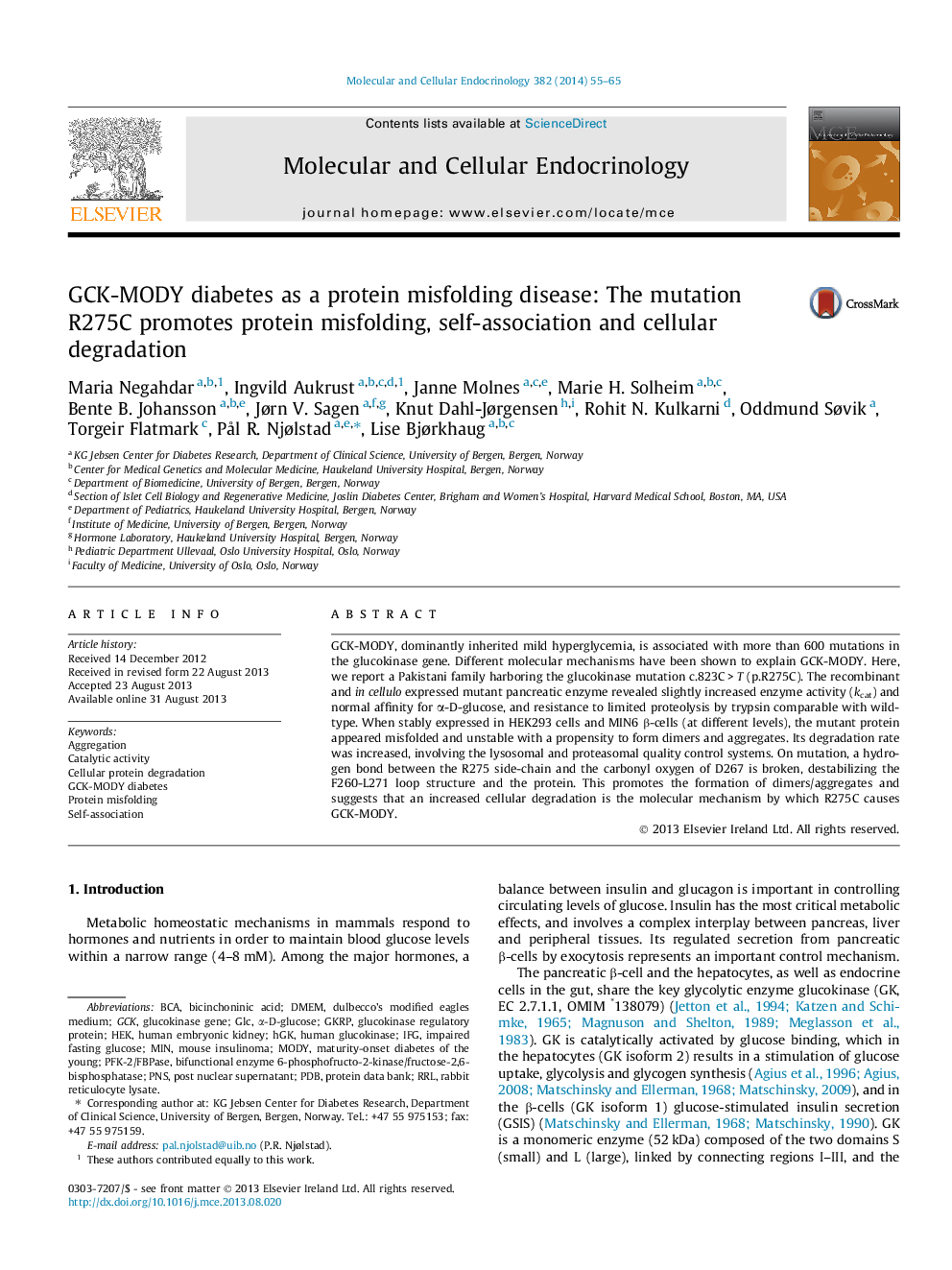| Article ID | Journal | Published Year | Pages | File Type |
|---|---|---|---|---|
| 10956108 | Molecular and Cellular Endocrinology | 2014 | 11 Pages |
Abstract
GCK-MODY, dominantly inherited mild hyperglycemia, is associated with more than 600 mutations in the glucokinase gene. Different molecular mechanisms have been shown to explain GCK-MODY. Here, we report a Pakistani family harboring the glucokinase mutation c.823C > T (p.R275C). The recombinant and in cellulo expressed mutant pancreatic enzyme revealed slightly increased enzyme activity (kcat) and normal affinity for α-D-glucose, and resistance to limited proteolysis by trypsin comparable with wild-type. When stably expressed in HEK293 cells and MIN6 β-cells (at different levels), the mutant protein appeared misfolded and unstable with a propensity to form dimers and aggregates. Its degradation rate was increased, involving the lysosomal and proteasomal quality control systems. On mutation, a hydrogen bond between the R275 side-chain and the carbonyl oxygen of D267 is broken, destabilizing the F260-L271 loop structure and the protein. This promotes the formation of dimers/aggregates and suggests that an increased cellular degradation is the molecular mechanism by which R275C causes GCK-MODY.
Keywords
GCKpost nuclear supernatantα-d-glucoseRRLGKRPhGKDulbecco’s modified eagles mediumIFGHEKDMEMPDBGlcBCAImpaired fasting glucosebicinchoninic acidAggregationMinSelf-associationMaturity-onset diabetes of the youngrabbit reticulocyte lysateProtein misfoldingCatalytic activityMODYProtein Data BankGlucokinase regulatory proteinPNShuman embryonic kidney
Related Topics
Life Sciences
Biochemistry, Genetics and Molecular Biology
Cell Biology
Authors
Maria Negahdar, Ingvild Aukrust, Janne Molnes, Marie H. Solheim, Bente B. Johansson, Jørn V. Sagen, Knut Dahl-Jørgensen, Rohit N. Kulkarni, Oddmund Søvik, Torgeir Flatmark, Pål R. Njølstad, Lise Bjørkhaug,
